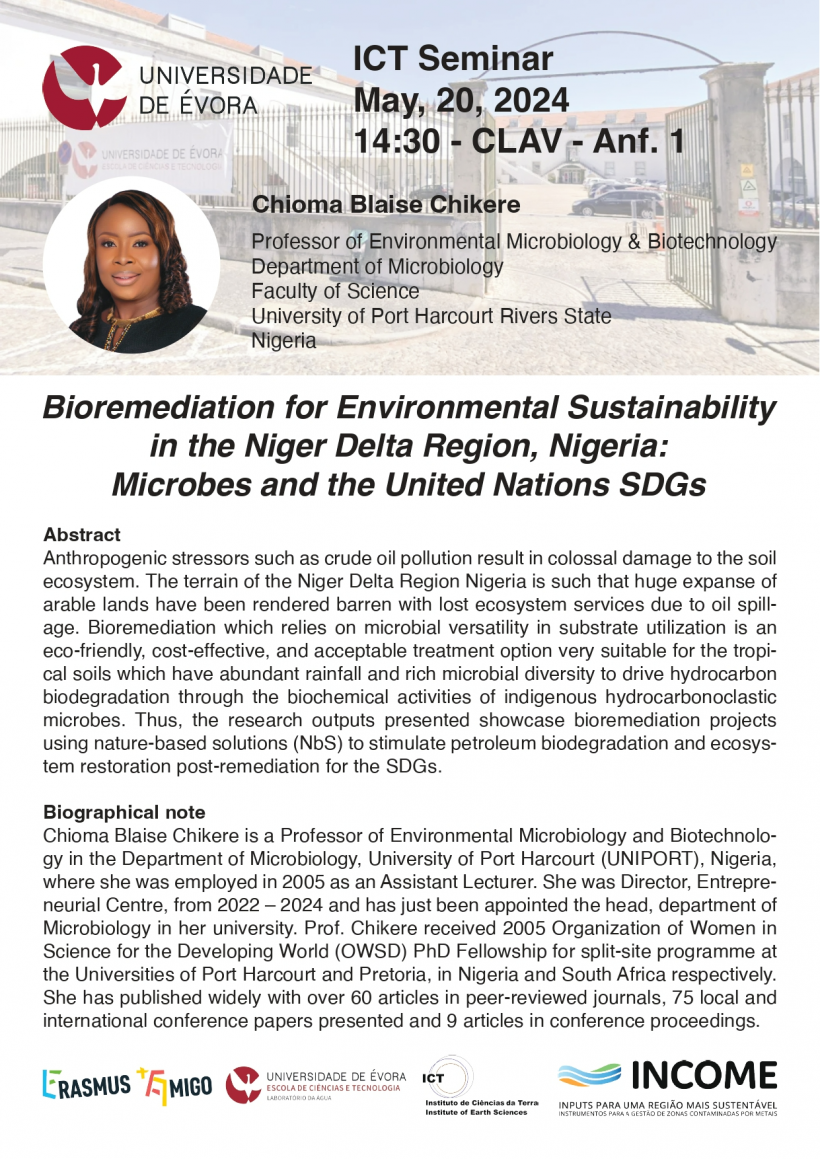Bioremediation for Environmental Sustainability in the Niger Delta Region, Nigeria: Microbes and the United Nations SDGs
oradora convidada Chioma Blaise Chikere, Professora na Universidade de Port Harcourt Rivers State, Nigéria
Seminário no âmbito do Programa Erasmus+Amigo, Laboratório da Água, Instituto de Ciências da Terra – Polo de Évora, e Projeto INCOME.
20 de maio de 2024, às 14:30, no Anfiteatro 1 do CLAV
Abstract
Anthropogenic stressors such as crude oil pollution result in colossal damage to the soil ecosystem. The terrain of the Niger Delta Region Nigeria is such that huge expanse of arable lands have been rendered barren with lost ecosystem services due to oil spillage. Bioremediation which relies on microbial versatility in substrate utilization is an eco-friendly, cost-effective, and acceptable treatment option very suitable for the tropical soils which have abundant rainfall and rich microbial diversity to drive hydrocarbon biodegradation through the biochemical activities of indigenous hydrocarbonoclastic microbes. Thus, the research outputs presented showcase bioremediation projects using nature-based solutions (NbS) to stimulate petroleum biodegradation and ecosystem restoration post-remediation for the SDGs.
Biographical note
Chioma Blaise Chikere is a Professor of Environmental Microbiology and Biotechnology in the Department of Microbiology, University of Port Harcourt (UNIPORT), Nigeria, where she was employed in 2005 as an Assistant Lecturer. She was Director, Entrepreneurial Centre, from 2022 – 2024 and has just been appointed the head, department of Microbiology in her university. Prof. Chikere received 2005 Organization of Women in Science for the Developing World (OWSD) PhD Fellowship for split-site programme at the Universities of Port Harcourt and Pretoria, in Nigeria and South Africa respectively. She has published widely with over 60 articles in peer-reviewed journals, 75 local and international conference papers presented and 9 articles in conference proceedings.

